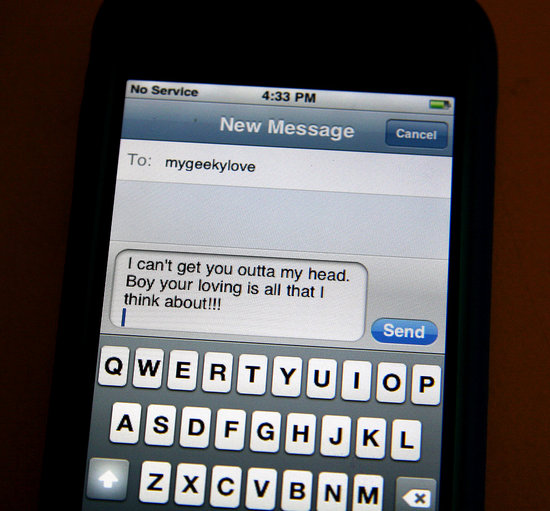
Can My Employer Read My Text Messages Through Wi-Fi?
In today’s digital age, we rely heavily on our smartphones for communication. We send and receive text messages, emails, and social media updates throughout the day. But what happens if your employer has access to your Wi-Fi network? Can they read your text messages?
Employer Monitoring of Employee Communication
It’s important to be aware that your employer may have policies in place that allow them to monitor your online activity, including your text messages. This is especially true if you are using a company-issued device or connecting to the company’s Wi-Fi network.
Employers may monitor employee communication for various reasons, such as:
- To ensure compliance with company policies and regulations
- To protect against security breaches or data leaks
- To investigate employee misconduct or potential legal issues
- To improve productivity and efficiency
Legal Considerations
The legality of employer monitoring of employee communication varies depending on the jurisdiction. In the United States, the Electronic Communications Privacy Act (ECPA) generally prohibits employers from intercepting or monitoring electronic communications without the consent of the parties involved.
However, there are exceptions to this rule. For example, employers may monitor employee communications if they have a reasonable suspicion that an employee is engaged in illegal or unethical activities. Additionally, employers may monitor employee communications if they have a legitimate business reason to do so, such as protecting the company’s network or data.
Tips to Protect Your Privacy
If you are concerned about your employer’s ability to read your text messages, there are a few steps you can take to protect your privacy:
- Use a personal device. If possible, use a personal smartphone or tablet to send and receive text messages. This will prevent your employer from monitoring your communication.
- Use a secure messaging app. There are a number of secure messaging apps available, such as Signal and Wickr. These apps encrypt your messages, making them inaccessible to anyone but the intended recipient.
- Be aware of your surroundings. When you are sending or receiving text messages on a company device or network, be aware of your surroundings. Make sure that no one is looking over your shoulder or eavesdropping on your conversation.
- Limit the amount of personal information you share. When sending text messages, avoid sharing sensitive personal information, such as your address, financial information, or medical history.
- Talk to your employer. If you have concerns about your employer’s monitoring of your communication, talk to them directly. They may be able to provide you with more information about their policies and procedures.
Frequently Asked Questions
Q: Can my employer read my text messages if I am not using a company-issued device?
A: In most cases, no. However, if your employer has access to your Wi-Fi network, they may be able to intercept and read your text messages.
Q: Can my employer monitor my text messages on my personal phone?
A: Only if you have installed software that allows them to do so. Most employers will not be able to monitor your personal phone without your consent.
Q: What should I do if I think my employer is reading my text messages?
A: First, try to talk to your employer directly to see if they can provide you with any information about their monitoring policies. If you are still concerned, you may want to consult with an attorney.
Conclusion
While your employer may have the ability to monitor your online activity, there are steps you can take to protect your privacy. By following the tips above, you can minimize the risk of your employer reading your text messages.
Are you concerned about your employer’s ability to read your text messages? What steps do you take to protect your privacy?

Image: www.youtube.com

Image: lazymomcafe.blogspot.com
Having Trouble Sending Text Messages When Connected To WiFi … The European Court of Human Rights (ECtHR) has handed down a decision on the right to privacy under Article 8 of the European Convention of Human Rights, in the context of a private sector employer’s monitoring of an employee’s work-related Yahoo Messenger account (Barbulescu v Romania 2016). In this case, the employee was dismissed for